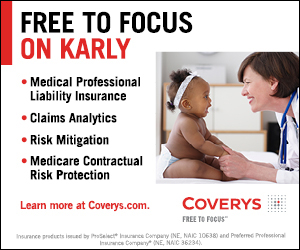
Q: Despite the fact that the vaccine has been made available to all my employees at this point a couple of them have refused to get it. Other employees say that they have been vaccinated but I wonder if I am being told the truth. I was told I should not be asking whether an employee has been vaccinated and that I cannot terminate the employment of an employee who refuses to be vaccinated. Is this true? Can I require proof that an employee has been vaccinated? Can I terminate employees or place them on leave if they refuse to be vaccinated?
You’ve been given incorrect or outdated information. On December 16, 2020, the U.S. Equal Employment Opportunity Commission (“EEOC”) issued guidance for employers regarding COVID-19 vaccination. One thing the EEOC’s guidance makes clear is that it is legal to ask an employee whether he/she has been vaccinated and to require proof of the vaccination.
Generally, the EEOC guidance states that a healthcare employer with a valid job-related reason can require an employee to receive a COVID-19 vaccine as a condition of employment. However, there are two exceptions. The first applies to employees who are unable to receive the vaccine due to a disability recognized by the Americans with Disabilities Act. The second applies to employees having a “sincerely held religious practice or belief” (as contemplated by Title VII of the Civil Rights Act) preventing them from being vaccinated.
Employers are also entitled to ask questions regarding an employee’s disability to make a reasonable determination that a recognized disability exists. An employee’s generalized claims of “chemical sensitivities, allergies and the like” has been held by one federal appellate court in a recent case to not constitute a disability under the Americans with Disabilities Act. These inquiries must be job related and consistent with business necessity.
Generally, prior to excluding an employee with a recognized disability preventing him/her from receiving the vaccine the employer must determine that the unvaccinated employee would pose a direct threat due to a significant risk of substantial harm to the health or safety of the employee or others that cannot be eliminated or reduced by reasonable accommodation. In a medical practice setting such reasonable accommodation might include requiring the unvaccinated employee to wear a different type and grade PPE that vaccinated employees are no longer utilizing. All determinations of what reasonable accommodations will be made for an employee unable to receive a vaccination due to a disability should be made on a case-by-case basis.
An employer is similarly required to accommodate employees who have a sincere religious belief that prevents them from being vaccinated, unless doing so would be an “undue hardship.” This undue hardship standard is less stringent than the standard used for determining a reasonable accommodation for an employee with a disability, requiring only that the employer show that providing an accommodation imposes “more than a de minimis cost or burden on the employer.” Again, in a medical practice setting such an accommodation might include requiring the employee to continue to utilize PPE that vaccinated employees are no longer utilizing.
The EEOC guidance states that employees who are not vaccinated due to a disability or a sincerely held religious belief and that cannot be reasonably accommodated may be “excluded” from the workplace. Excluded does not mean only terminated. If an employee can perform his/her job functions remotely this possibility medical practice setting remote work is not going to be a possibility for many employees (e.g., nurses, medical assistants, physicians, etc.).
Employees who do not have a disability or sincerely held religious belief preventing them from being vaccinated are currently not subject to the protection of any law that would prevent them from being disciplined or terminated for their refusal to be vaccinated and/or providing proof of vaccination when requested by an employer.
Daniel J. Schulte, JD, MSMS Legal Counsel is a member and managing partner of Kerr Russell.













